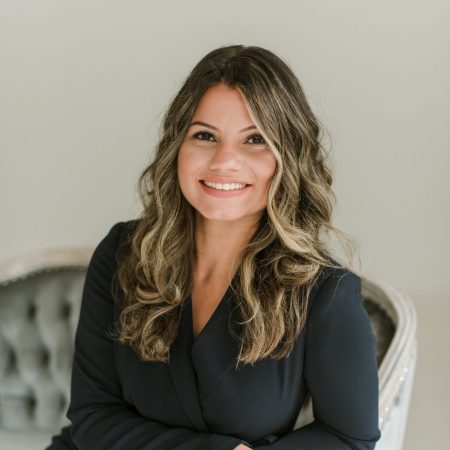With Netflix releasing both “Monsters: The Lyle and Erik Menendez Story,” a dramatization of the Menendez brothers’ story helmed by Ryan Murphy, and the documentary “The Menendez Brothers,” featuring new interviews with Lyle and Erik Menendez, generational trauma and the cycle of abuse have been brought into the spotlight.
For those unfamiliar with the case, Lyle and Erik Menendez testified about experiencing horrific abuse from their father for years, with their mother enabling the abuse, such that they feared for their lives as a result. Central to the story is their confession to murdering both their parents—Kitty and Jose Menendez—when they were young adult men, ages 18 and 21. In the documentary and dramatization, the audience is left to grapple with the question, “To what extent, if any, can a history of abuse justify or explain their actions in committing the murders of their parents?”
At present, there is renewed interest in weighing the evidence of their abuse against the judgment of their crimes, with people ranging from Kim Kardashian to the Los Angeles District Attorney calling for resentencing. We know so much more now than we used to about how abuse can be hidden, how it normalizes violence, how it impacts the brain, and how society should help abuse survivors.
Abuse and its impacts
Hiding abuse is easier when power dynamics play a part
Power dynamics make it easier to hide abuse. When social, financial, or interpersonal power dynamics are at play, those with less power have less ability to make their voices heard. Sometimes, this can be subtle, sometimes obvious. To use the Menendez brothers as an example, for their first trial, none of the male jurors believed the abuse stories, and all the female jurors did. This difference in perspective likely stemmed from varied life experiences with power dynamics, a bias that many abuse survivors continue to face when confronting those with power over them.
Children are especially vulnerable, often being told that their discomfort isn’t important and that they have to do as they’re told. When this messaging intersects with abuse—especially abuse within the home or from a teacher, a trusted friend, or a family member—they often don’t speak up. Children are also more likely to be threatened with loss of shelter or food, and because they are young, it is easier to manipulate them emotionally.
Children are also less likely to be believed when they report abuse. In the Menendez brothers’ case, they reportedly shared their experiences with their mother and relatives but were brushed off or punished, a pattern that still continues in some families. Thankfully, we are beginning to see shifts as society grows in understanding the dynamics of abuse and the critical need to believe and protect children.
Abuse can normalize abuse, especially for children
One of the most tragic aspects of childhood abuse is the implicit trust children place in their caregivers. In these formative years, children naturally assume that what adults present as “normal” is, in fact, normal. When adults downplay, normalize, or ignore abuse, children internalize these messages, often believing the mistreatment is typical, justified, or even a form of love. This perception can shape their entire understanding of relationships, affecting them long into adulthood.
Abuse can become so ingrained that, in adulthood, it often seeps into a person’s interpersonal dynamics. Adults who have experienced abuse may not recognize harmful patterns, instead minimizing and normalizing them, and unintentionally recreating aspects of their childhood experiences in workplace dynamics, romantic relationships, friendships, and as parents. They may also seek out abusive dynamics that feel familiar, accepting treatment they feel is “normal”, even when it causes them harm. This perpetuates the cycle of abuse across generations, embedding trauma that passes from one generation to the next—a powerful, often unseen force driving generational trauma.
There is a very delicate nuance to determine the outcome of normalized abuse; those who survive abuse are not destined to be violent or harmful to others, nor are they destined to be abused for the rest of their lives. True, to avoid perpetuating the cycle, there is a mountain to climb to acknowledge what happened to them, process the trauma, and yet choose a different path for themselves—but it is possible. Accepting responsibility for our actions today, despite what we’ve experienced in the past is important for all adults, and when we learn that breaking the cycle of abuse is possible, it’s our job to make it happen. Accepting responsibility looks like enacting broad changes in both self-regulation and self-respect so the abuse stops with us.
The cycle of abuse and the brain
As children and teens, our brains are constantly being shaped by our experiences, building and refining networks of synaptic connections—the pathways through which brain cells communicate. During childhood, our brain builds an abundance of synaptic connections, creating a foundation for learning and growth. When puberty arrives, the brain begins pruning unnecessary synapses, refining itself in preparation for adulthood. In environments of neglect or abuse, however, these pathways develop differently. If such experiences persist into puberty, the brain adapts by wiring itself to survive within that environment, reinforcing connections that support survival over other types of growth.
In individuals who experienced childhood abuse, the amygdala—a region of the brain responsible for processing emotions, especially fear—tends to be more active. This leads to impulsive behavior and a stronger perception of threats. Even everyday situations can feel dangerous for abuse survivors, especially when they haven’t had the chance to reprocess their trauma and, in a way, “rewire” their brains.
Additionally, abuse can reduce the brain’s response to positive experiences, making it harder to feel secure or find comfort in typical gestures of safety and joy. As a result, survivors may struggle to experience the full impact of rewards, safety, and enjoyment, as their brains remain wired for vigilance and survival.
These brain changes mean that continuing the cycle of abuse for generations is more likely, as abuse shaping our brains primes us for more abuse. However, it is very important to remember that brain connections are not permanent, and we have the power to change, especially with the support of a trustworthy therapist!
Breaking the abuse cycle is possible
Therapists have a central place in helping abuse survivors
Therapists were an integral part of the Menendez brothers’ trial. Several respected therapists served as interviewers and then witnesses for the defense; the brothers were initially very reluctant to share anything about their abuse, and these therapists helped create a strong enough bond of trust to allow them to be honest, both in session and, eventually, in trial.
That’s the power of a good therapist and the sacred thing about a bond of trust with a therapist; being safe enough to share enormously difficult life circumstances can be the key to starting to recognize and process abuse. For the Menendez brothers, it was also the key to their legal defense in their first trial.
One of the most powerful realizations available to a person who has endured abuse, and possibly even perpetuated the abuse cycle as a result, is the realization that it doesn’t have to be this way anymore. With dedicated work toward processing trauma, self-understanding, self-compassion, and making deliberate changes, the abuse cycle can be broken. Support and guidance from a trusted therapist provide a critical source of knowledge and understanding, helping individuals compassionately reorient their perspectives on their past, themselves, and their relationships.
When good therapists go bad: breach of trust can harm clients and careers
A central figure in the Menendez brothers’ story was Erik’s and Lyle’s longtime psychologist, Dr. Oziel. During a therapy session, Erik confessed to the murders he and Lyle committed, and the prosecution, with the judge’s permission, brought Dr. Oziel forward as a witness during the trial due to potential threats the brothers had allegedly made against him.
However, Dr. Oziel had already breached confidentiality long before his court testimony. He had signed an agreement with the Menendez brothers’ father to allow him access to everything Erik and Lyle shared in their sessions. After hearing Erik’s confession, claiming he feared for his life, the doctor tape-recorded both brothers confessing and detailing the crime. He even had his mistress eavesdrop on their sessions from another room, breaching confidentiality and violating his ethical duties. Later, it was his mistress who contacted the police about the brothers’ confession after she and the psychologist split up.
In “Monsters,” there is a dramatic scene of Dr. Oziel rushing to a payphone while Erik Menendez remains in his office, calling his mistress to tell her what Erik has confessed. Another scene shows the mistress pressing her ear to the wall to listen in on a later session. These scenes are probably closer to pulp fiction than reality, but they highlight something important.
Therapists, and their trustworthiness, matter. They matter for the safety of their clients—the Menendez brothers weren’t able to safely discuss their childhoods with their therapist without their father finding out. They matter for the integrity of the profession—one questionable therapist can create distrust for all therapists. And they matter for individual therapists—Dr. Oziel’s license was revoked in 1997 for breach of confidentiality and for sexual contact with patients. His career was derailed because of his actions, his clients were less safe, and harm continued, because he was remiss about confidentiality, and he reduced trust in the therapeutic community through his actions.
The cycle of abuse is complicated, but help is available
The Menendez brothers’ story, viewed through the lens of abuse and generational trauma, reveals how deeply abuse can impact an individual. If you or someone you know is struggling with the lasting effects of abuse, reaching out to a compassionate therapist can be a brave first step toward breaking the cycle. A safe and supportive therapeutic relationship can offer the guidance and empathy needed to begin processing past trauma, understand your patterns, and create a different future for yourself and generations to come.


